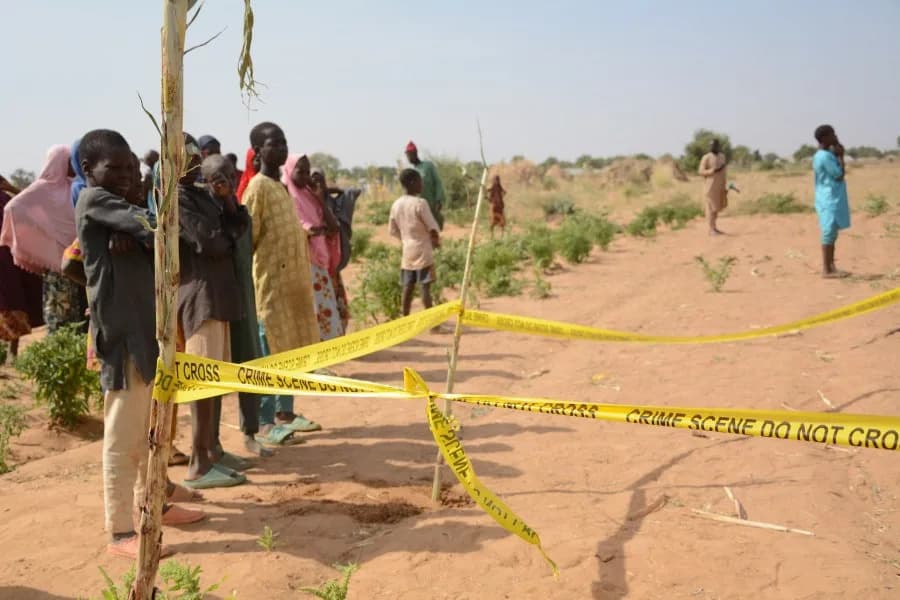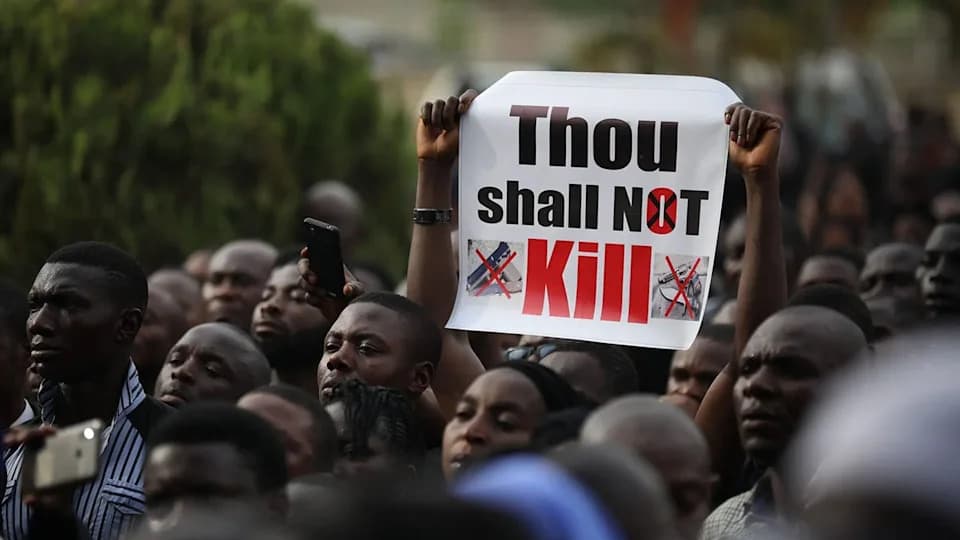Nigeria has rejected claims by former US President Donald Trump that Christians are being persecuted with government support. Foreign Minister Yusuf Tuggar presented a document he said reaffirms constitutional protections for religious freedom and denied state-sanctioned persecution. Trump warned of cutting aid and cited Nigeria’s redesignation as a Country of Particular Concern, while Nigerian leaders and analysts say victims of violence come from all faiths and point to long-running insurgency and communal clashes as the underlying causes.
Nigeria Pushes Back Against Trump: Government Says No State-Sanctioned Persecution Amid Rising Violence

Nigeria rebuts US claims that Christians are being persecuted
The Nigerian government has strongly rejected assertions by former US President Donald Trump that Christians in the country are being persecuted and that the Nigerian state tolerates or enables such violence. Speaking at a joint news conference in Berlin, Foreign Minister Yusuf Tuggar held up a document titled "Nigeria’s Constitutional Commitment to Religious Freedom and Rule of Law" and said it guides the country's approach to religious liberty.
"All the answers are in there. This is what guides us," Tuggar said, adding: "It’s impossible for there to be religious persecution that can be supported in any way, shape or form by the government of Nigeria at any level."
Tuggar’s response followed social media posts by Trump in which he warned that Washington could halt all aid to Nigeria if it "continues to allow the killing of Christians" and said he had instructed the so-called "Department of War" to prepare for possible action. Trump later suggested the US might deploy troops or carry out air strikes and cited his decision to redesignate Nigeria as a Country of Particular Concern — a US designation for countries judged responsible for severe violations of religious freedom.
US Senator Ted Cruz, an ally of Trump, has also amplified concerns in conservative and evangelical circles, accusing Nigerian officials of enabling violence against Christians and introducing legislation — the Nigeria Religious Freedom Accountability Act of 2025 — aimed at holding accountable officials he says facilitate extremist violence and repressive laws.
Government response and context
Nigerian leaders acknowledge serious security challenges but say the violence is not confined to a single faith community. President Bola Tinubu emphasized that the characterization of Nigeria as broadly religiously intolerant "does not reflect our national reality." Tinubu, a Muslim from southern Nigeria who is married to a Christian pastor, and other officials have stressed that victims of armed groups include people of all faiths.
Nigeria, Africa’s most populous nation, is home to roughly 238 million people. The population is almost evenly split between Muslims (about 46 percent, mainly in the north) and Christians (about 46 percent, largely in the south), according to the Association of Religion Data Archives.
For more than a decade, Islamist insurgents such as Boko Haram and other armed groups have waged conflict in the northeast, displacing millions and leaving a heavy toll: Amnesty International estimates that more than 10,000 people have been killed in that region since President Tinubu took office two years ago. In the central states, communal violence has increased, with clashes between predominantly Christian farming communities and predominantly Muslim Fulani herders — often driven by disputes over water and grazing land.
Outlook
While the international debate over the religious framing of these attacks continues, Nigerian officials are urging a nuanced response that addresses insurgency, resource-driven communal conflict, and weak security capacity — rather than attributing the violence solely to religious persecution backed by the state.
Help us improve.


































